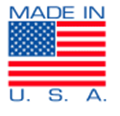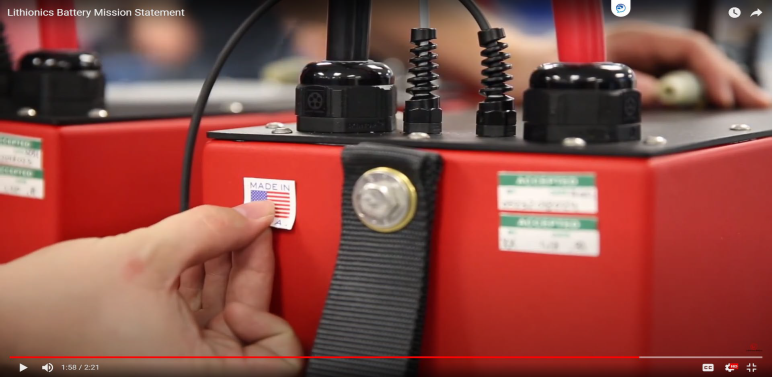For people who prefer to buy Made in USA merchandise, products from Lithionics Battery LLC seemed like an attractive option. According to the FTC, Lithionics and General Manager Steven Tartaglia used phrases and American flag images to convey a Made in USA marketing message for their battery, battery module, and battery management system products. But don’t wave Old Glory just yet. As the FTC’s first action under the new Made in USA Labeling Rule alleges, the lithium ion cells Lithionics used were actually made in China. The proposed settlement includes a civil penalty of $105,319.56 and requires changes in how the company makes Made in USA claims.

Lithionics sells battery products for recreational vehicles, marine applications, and similar uses. The defendants labeled their merchandise with an image of the flag image surrounded by the words “Made in U.S.A.” Sometimes they added the phrase “Proudly Designed and Built in USA.” The defendants doubled down on those representations on the Lithionics website, in mail order catalogs, and in social media. For example, the complaint cites YouTube videos featuring Tartaglia and company employees putting Made in USA labels on Lithionics products. Other marketing materials featured a chart comparing the “advantage[s] of Lithionics battery systems” to what are described as “imports.”
Under the Made in USA Labeling Rule, marketers are prohibited from labeling products as “Made in USA” unless all or virtually all ingredients or components are made and sourced in the United States. What’s more, the final assembly or processing – and all significant processing that goes into the product – must occur in the US.
But according to the FTC, Lithionics battery and battery module products incorporated Chinese-made lithium ion cells, and Lithionics battery management systems included significant imported components. That’s why the FTC says the defendants’ “Made in USA” claims were deceptive.
The complaint, which names both Lithionics and Tartaglia, alleges violations of the Made in USA Rule and Section 5 of the FTC Act. In addition to a civil penalty of $105,319.56 authorized under the new Rule, the proposed settlement includes injunctive provisions that will change how the defendants do business going forward. For example, the order prohibits them from making unqualified U.S.-origin claims unless they have proof that the product’s final assembly or processing – and all significant processing – takes place in the US and that all or virtually all ingredients or components are made and sourced here.
The order further requires that any qualified Made in USA claims include clear disclosures about the extent to which the product contains foreign parts, ingredients, or components, or involved foreign processing. Finally, if the defendants convey that a product is assembled in the United States, they must ensure it was last substantially transformed in the US, its principal assembly took place here, and US assembly operations are substantial.
If your company makes Made in USA claims, the case offers two important compliance notes.
- Review the Rule to keep your representations red, white, and true. If you make Made in USA claims, do they comport with the Made in USA Labeling Rule? The new civil penalty remedy can make non-compliance costly.
- If necessary, take care to qualify your claims. If you make Made in USA claims that are “unqualified “ – in FTC parlance, that means claims that aren’t modified or limited – you must to live up to the “all or virtually all” standard. If you made “qualified claims” – claims that include caveats or explanations – the legal onus is on you to ensure those qualifications are clearly understood by consumers. The FTC’s Enforcement Policy Statement on U.S. Origin Claims provides more guidance on making Made in USA claims.


A civil penalty of 105,320USD for obscuring the product's country of origin is rather lenient. Penalties in other countries (EU) would likely be much stiffer. In large purchases, in international trade, the country of origin certification is an important document as it affects the import tariff not just the image of source country. The "Made in America" label should be applied according to the law and treated with respect. Penalties should be stiffer for blatent disregard of applicable US laws or the violations will just continue at the cost of loss of domestic (US) production and jobs.
The 'FTC' is doing a great job looking after our 'Made in America' logo and should continue looking into any and all false claims to assure the products are made in the 'USA'.